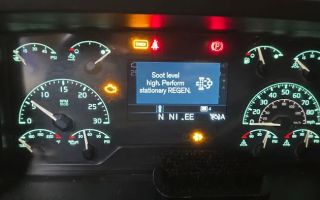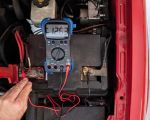As someone who relies on my car every day, one of the things that I’ve come to realize over the years is just how important the car battery is to the overall performance of the vehicle. Without a healthy and functioning battery, the car simply won't start or run properly. This made me wonder: how often should I replace my car battery? Is there a set timeline, or is it more about paying attention to the signs of wear and tear? After going through a number of experiences and talking to various experts, I now have a clearer idea of what to look for and how to maintain the car battery for longer life.
The life expectancy of a car battery can vary based on several factors, and it’s crucial to understand how these elements impact its longevity. Typically, most car batteries last between 3 and 5 years. However, there’s no one-size-fits-all answer. The type of battery, the way you drive, and even where you live can significantly influence how long your battery will last.
1. Factors That Affect Battery Life
The first thing I learned is that several factors determine the lifespan of a car battery. The climate plays a huge role. If you live in a region with extreme temperatures, particularly hot climates, your battery may wear out faster. Excessive heat accelerates the chemical reactions inside the battery, causing it to lose its charge capacity over time. On the flip side, very cold weather can make it harder for the battery to deliver a strong charge, though it doesn’t necessarily cause damage to the battery itself.
Another factor is the way I drive. Short trips where the engine doesn’t run long enough to fully recharge the battery can lead to a quicker degradation. I’ve noticed that regular, longer drives help maintain the battery's health by giving it the time it needs to recharge. The electrical system in your car, including the alternator, also affects how well the battery performs. If the alternator isn’t functioning optimally, it can lead to an undercharged battery, even if the car is being driven regularly.
2. Signs It’s Time to Replace the Battery
One of the key things I’ve learned over time is to pay attention to the symptoms that indicate my battery is nearing the end of its life. For example, I’ve noticed that the car tends to start slower than usual. When I turn the key, the engine cranks but takes longer to start, which is often a sign that the battery is struggling. Similarly, if I start the car and notice flickering dashboard lights, it can also be an indication that the battery is losing power. I’ve come to realize that even small signs like these shouldn't be ignored, as they could point to a bigger issue ahead.
Another clear indicator is when I start the car, and I hear a clicking sound but the engine doesn’t turn over. This is a common sign of a dead or dying battery. It’s happened to me a couple of times when the battery had been in use for over four years, and it’s a sign that the battery can no longer deliver the charge needed to start the engine. The age of the battery is also a crucial factor. If it’s nearing the 4-5 year mark, it might be a good time to think about getting a replacement, even if there are no obvious signs of malfunction yet.
3. Testing the Battery
If I’m unsure whether my car battery is still in good condition, I always get it tested. Many auto parts stores offer free battery testing services. They use a device to measure the voltage and overall health of the battery, which helps determine whether it needs to be replaced. I've also learned that if the voltage is below a certain threshold (typically around 12.4 volts when the car is off), it may indicate that the battery is weakening and should be replaced soon.
Additionally, it’s important to check the battery’s terminals for any corrosion or buildup. If I see white or greenish substance on the terminals, that’s a sign of corrosion, which can hinder the flow of power and cause the battery to work less efficiently. Cleaning the terminals can sometimes prolong the life of the battery, but if the corrosion is severe, replacing the battery is often the best option.
4. How to Extend the Life of Your Car Battery
While it’s inevitable that every car battery will need to be replaced eventually, there are several steps I’ve taken to make sure my battery lasts as long as possible. First and foremost, I make sure to drive my car regularly, even for short trips. A consistent routine helps keep the battery charged and prevents it from losing its power too quickly.
I also keep an eye on the electrical system. I’ve found that using too many electronics (like leaving the headlights on or using power-hungry accessories when the car isn’t running) can place additional stress on the battery. The alternator is another part I’ve learned to monitor. If it starts to fail, it could prevent the battery from charging properly, so I make sure to have it checked regularly to avoid future problems.
5. What to Do When It’s Time to Replace the Battery
When the time finally comes to replace the car battery, I always make sure to choose a high-quality replacement. I’ve learned that the cheapest option isn’t always the best, as lower-quality batteries tend to wear out more quickly. It's better to invest in a reputable brand, even if it costs a little more upfront. I also ensure that the new battery is properly installed, with clean terminals and the correct voltage. If you’re unsure about the installation process, it’s always a good idea to seek professional help from a mechanic to avoid damaging the new battery or the car’s electrical system.
6. The Cost of Replacing a Car Battery
Replacing a car battery isn’t necessarily cheap. In my experience, the cost can vary depending on the make and model of my car, as well as the type of battery I choose. Generally, I’ve found that a good-quality battery will cost anywhere from $100 to $200, but it’s important to weigh the benefits of paying a little more for a longer-lasting product. The labor costs for installation can also add to the overall price, but it’s usually worth it for the peace of mind knowing that my new battery is installed correctly and working efficiently.
7. What Happens if You Don’t Replace the Battery in Time?
If you don’t replace the battery in time, you risk running into much bigger problems. For instance, a dead battery could leave you stranded, unable to start your car. This has happened to me before, and it’s incredibly frustrating, especially if you’re in a hurry. A dying battery can also lead to electrical issues that might affect other systems in your car. In some cases, a malfunctioning battery can cause damage to the alternator or other components of the electrical system, leading to even higher repair costs down the line.

























